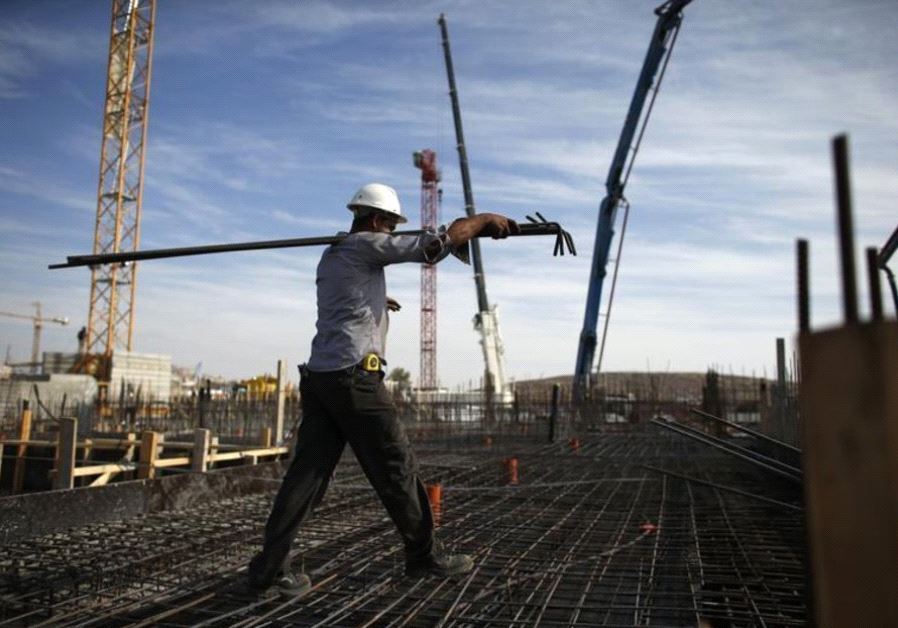EU warns Israel’s Har Homa, Givat Hamatos building harms 2-states
Building in these areas would undermine the viability of a future Palestinian state, the EU and Ireland, Germany, France and Italy say.
 A laborer works on an apartment building under construction in the Har Homa neighborhood of Jerusalem
A laborer works on an apartment building under construction in the Har Homa neighborhood of Jerusalem